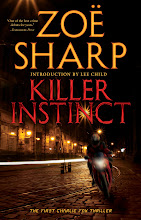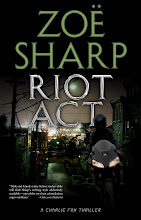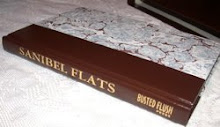Chapter One
THE RECEPTION WAS at the Lonesome Piper Country Club. The piper was so lonely because no one could afford the membership dues. Situated on a twenty-four-karat parcel of Long Island’s Gold Coast, the clubhouse, the former manse of a railroad robber baron, sat on a tree-lined bluff overlooking the Sound and Connecticut beyond. One peek at the place and you immediately understood why Old New York money had claimed this piece of the island as its enclave.
I had to admit that even if the marriage didn’t last the honeymoon, Craig and Constance would have a hell of a wedding album. As the photographer clicked away—“That’s right. That’s right. Groom, turn a little more to your left. Good. Smile. Perfect. Perfect. Hold it. Just one more . . .”—I couldn’t help but be curious how Aaron and I had wound up on the guest list. Considering the social status of our fellow invitees, my brother and I had a lot more in common with the help.
Constance had worked for us for about six months while she was finishing up at Juilliard. That was over a year ago, and it wasn’t like she was employee of the century or anything. True, we liked her well enough, as did our customers, but we never fooled ourselves that she’d stay on. Constance was a wealthy, handsome, and talented young woman who was more playing at work than working. It was as if she were fulfilling some sort of missionary obligation to teach the children of the Third World how to read.
Frankly, I didn’t care why we were invited. All I knew was that Katy, my wife, was in better spirits today. Smiling, even dancing with me a little, she seemed almost her old self. She had taken time with her makeup, fussed with her hair, worn a dress that accentuated her curves. She had kissed me hard on the mouth for the first time in months, making a show of wiping her lipstick off my lips with her fingers. It was as if she had awoken from a coma.
“Excuse me, sir,” a red-jacketed waiter said, just touching my shoulder. “Mr. Geary, the bride’s father, would like a word. He’s waiting for you in the East Egg Room.”
It wasn’t up for discussion, and I was curious anyway.
The East Egg Room was a private space on the other side of the clubhouse, away from the dining area and close to the men’s locker room. It was all walnut paneling, green glass ashtrays, and nailhead chairs, and smelled like the ghosts of my father’s cigars. This was the place where members played poker, drank scotch or cognac, made private deals. Mr. Geary smiled at my entrance, but with proper restraint. Six feet tall and square shouldered, he was a man of sixty with the weathered good looks of a cowboy. A cowboy with a North Shore dentist and a personal trainer. He looked perfectly at ease in his surroundings and gray morning coat.
“Mr. Prager,” Geary said, offering me his firm hand. “A pleasure to meet you. Connie tells me you and your brother treated her very well during the time of her employment. I trust you and Mrs. Prager are enjoying yourselves.”
“Very much so. Thank you.”
He cleared his throat. The prepared text or pretext out of the way, he was ready to move on to the real business of the day.
“Do you know Steven Brightman?” my host asked, picking up his Manhattan off a green-felt-covered card table.
“Should I?”
“Come, take a stroll with me, Mr. Prager.”
We stepped through the pro shop, toward the practice putting green and along the driving range. Several of the members nodded to Geary; a few took a moment to congratulate him. They regarded me with suspicion, some scowling as if I were one rung up the evolutionary ladder from silverfish.
“Do you follow politics, Moe? May I call you Moe?”
“No and yes. I’m an ex-cop, Mr. Geary. Cops don’t have much use for politicians, though politicians got lots of uses for cops. None of ’em any good as far as I can tell. And yeah, you can call me Moe.”
“Though I sometimes find them as distasteful as you do, a man in my position inevitably makes the acquaintance of several politicians.”
“No doubt.”
He pointed out to the first-hole tee box. “Do you play?”
“Some. Brooklyn isn’t exactly a hotbed of great golfers.”
“You know why they call it golf?”
“Because all the other four-letter words are taken.”
“Exactly.”
I suppose he thought telling me the oldest golf joke on earth was meant to show he was just a regular Joe, that we weren’t really that different, he and I, in spite of minor details like wealth, religion, breeding, schooling, and career. Did he have a career? I wondered what he had time for besides being rich.
“You should play more, you know,” he continued. “It’s a real thinking man’s game. Chess with sticks is how I view it. The uninitiated believe ball striking is the talent, but it’s the ability to manage the course, to think your way around it, that makes a good golfer.”
There was a message for me in there somewhere.
“No offense, Mr. Geary, but what’s this—”
“A young woman named Moira Heaton, the daughter of an ex-policeman like yourself, was working as an intern for a state senator. She left his office on Thanksgiving Eve 1981 and never made it home. She’s been missing ever since. Not a dissimilar story to that of your brother-in-law, Patrick.”
“Do you research all your wedding guests this thoroughly?”
He laughed, but not loudly enough to disturb anyone’s backswing. “No, Moe, not all my guests.”
“This is where I guess that the missing girl worked for Brightman and that you think I can help find her, right?”
“Actually, Moe, I was hoping you would have heard of this and saved me the trouble of the background details. Short of that, yes, I think you might be able to help.”
“Sorry, Mr. Geary, I really appreciate having been invited here and I have had a good time, but I—”
He shushed me politely. “Moe, a wise man listens before making up his mind, and all I’m asking is that you consider taking this on. If, when all is said and done, you choose not to get involved, then we’ll shake hands and part amicably.”
This guy was good. Never had the promise of a friendly handshake sounded so much like a threat.
“Let me think about it, okay?” I parried. “At the moment I’d like to head back to the reception and dance with my wife a little.”
“Absolutely. Pardon my taking you away from her. Convey my apologies, won’t you?”
“I will. Again, congratulations.”
When I got back to the reception, things had changed, and not for the better. Aaron was pacing a rut in the cart path outside the pro shop.
“Where the fuck have you been?”
“Getting a lecture on philosophy and the art of golf. Why?”
His lips turned down, anger changing to sadness. “It’s Katy.”
“What’s Katy? What happened?”
“After you left, I was dancing with Cindy.”
This was remarkable in itself. Aaron and my sister-in-law danced about as often as Siamese cats went scuba diving.
“Yeah, you were dancing and . . .”
“One of Constance’s cousins walked by our table carrying her newborn, and Katy asked if she could hold the baby.”
“Oh, for chrissakes! She was happy today. Where is she?”
Aaron shrugged. “Still in the bathroom with Cindy.”
Needless to say, my presence was less than welcomed in the ladies’ room. Anyone who could flee did so at the sound of my voice. Only the attendant, a wrinkled old black woman in pink polyester and a silly frilled hat, protested. I chucked a twenty in her tip basket and her squawking came to an abrupt end. I nodded for Cindy to wait outside.
“Just tell everyone the toilets are flooding.”
Guilty, wounded, Katy couldn’t look at me. She angled her legs and chin toward the stall wall, her chest heaving as she tried to suppress her tears. I knelt down in front of her and held her hand. Her face was a mask of trembling embarrassment.
“It’s okay, kiddo. You’ve gotta stop punishing yourself like this. You didn’t do anything wrong.”
A month, two months ago, these words would have been magic. Abracadabra! Presto chango! She would have stopped crying immediately, for I would have pushed her rage button. First she’d aimed her accusing finger at God, then at herself, then me. Initially, I hadn’t minded. I’d almost welcomed it in a martyrly fashion: if it helped Katy, I could take it. But eventually it left us both exhausted and bruised. No, the rage was gone, and in its place were only guilt and pain.
Our baby was dead. Had it been someone else’s, someone I’d read about in the paper, I suppose I could have retreated into the comfort of cold philosophy. I could have played the semantics game. Was it really a baby at five months? A fetus? What? At least we still had Sarah. At least we had been spared the trauma our friends Cisco and Sheila had been forced to endure. Their son had been stillborn. What’s worse, when Sheila’s labor was induced, they knew their son was dead. Of course I’d been philosophical about it, spouting the usual bullshit about how it was better this way. What way was that? Better for whom, exactly? We haven’t seen Cisco and Sheila for over a year now.
I realized I’d been punishing myself, the way Katy had punished herself, the way she punished me. In spite of my Jewishness, I know only the guilty deserve to be punished, and even then, not always. Given the randomness of things, it’s a miracle any of us get born at all. But that knowledge doesn’t stop my mother’s words from ringing in my ears: When things are good, watch out! In the world of her creation, we were always one breath short of disaster, one nightfall away from the sun’s refusal to shine. My mom lacked perspective. Now I had all the perspective I could stand.
“Life is hard for us all.” That’s what my friend Israel Roth says. “It’s not a contest of whose life is worse. When the Gettys are sad, their misery is as real as mine or yours. Money is a retreat, not a fortress. Maybe I understand your mother, may she rest in peace, a little bit different than you. Life changes a person. Maybe she would regret some of her ways, take some things back. But she’s gone and nothing can change the dead. Just say Kaddish and move on.”
Mr. Roth, unlike me, has earned the right to be philosophical about death. The Nazi tattoo on his forearm says so.
Still, things had been good. Katy’s design business was taking off. Sarah—the smartest, most beautiful child on earth—was being two with a vengeance, but that was as it should be. City on the Vine and Bordeaux in Brooklyn, the wine shops Aaron and I owned, were booming. I had my doubts about Reaganomics, but the money seemed to be trickling down at least as far as our cash registers. What did I know about economics anyway? I voted for Jimmy Carter. Twice!
So, like I said, things had been good, were good. I wasn’t even particularly itchy anymore. I’d worked my one case as a private investigator and gotten the notion out of my system. Besides, all I’d got for my trouble was bruised kidneys and a trunk full of other people’s secrets. Who needed the grief? I had enough of my own. So I put my license back in the sock drawer with the rest of my dreams. Even the dust bunnies thought my license was a bit of a farce, a frightened man’s conceit, a hedge against the ifs in life. Then we had the miscarriage. There are no hedges.
“Come on,” I said, tugging on Katy’s hand. “Let’s go home and see Sarah, okay?”
She smiled in spite of herself. Whatever other tragedies she’d suffered, whatever regrets Katy had, there was always Sarah to go home to. Sometimes that kid of ours could be an amazing source of strength for the both of us.
“Okay, Moe,” Katy relented, standing up and smoothing out her dress. “Just give me a minute.”
As I waited outside the door, I tried imagining the face of a woman I’d never met before or even heard of until fifteen minutes ago. I wondered if her father was thinking about her at that very moment, if he had hedged against the loss of his daughter. It was a day to think about fathers and daughters.
“Where have you got to, Moira Heaton?” I mumbled under my breath.
“Did you say something?” Katy asked, reappearing at my side.
"It’s not important.”
The dappled June light smelled of fresh-cut grass and possibility. Hope and potential were easy to believe in on a sunny wedding day in June. Just as we stepped out, Constance and Craig were getting into the limo that would take them to the airport. I hadn’t thought to ask where they were headed. On a day like this, they could go anywhere. But anywhere they went, they would not remain untouched for very long. That was always the test, I thought, not how good you were at avoiding the blows, but how you dealt with them after they landed.
-------------------------------------------------------------
Reed Farrel Coleman's
The James Deans (trade paperback; $14) -- the Shamus / Anthony / Barry Award-winning third Moe Prager novel -- will be reprinted this week, with special bonus features not found in the Plume original!: New foreword by best-seller
Michael Connelly; new afterword by Reed Coleman; two Moe Prager short stories ("Requiem for Jack" and "Requiem for Moe"); and excerpt from fall 2009 novel,
Tower (written with Ken Bruen). Find copies at your favorite independent, chain, or online bookseller. See the list at the right for some indies that support and stock BFP!
Coming soon... Reed's "top-ten" list of most influential books, information on A. E. Maxwell's upcoming reprint, Just Another Day in Paradise, a guest blog entry from Edgar Award nominee Bill Crider, and more!  As he has long been a friend and supporter of Murder By The Book and the mystery world in general, it made us all proud when Alvin, Texas, mystery writer Bill Crider earned an Edgar Award nomination for his darkly comic short tale, "Cranked" (in Damn Near Dead / read it here for free!). His 16th Sheriff Dan Rhodes novel, Murder in Four Parts (St. Martin's Minotaur), pubs in February. The Dan Rhodes books are a lot of fun, but personally, my favorite works of his are the five featuring Galveston private eye Truman Smith. Find his own blog at billcrider.blogspot.com, but he graciously contributed an entry for BFP's. Read on...
As he has long been a friend and supporter of Murder By The Book and the mystery world in general, it made us all proud when Alvin, Texas, mystery writer Bill Crider earned an Edgar Award nomination for his darkly comic short tale, "Cranked" (in Damn Near Dead / read it here for free!). His 16th Sheriff Dan Rhodes novel, Murder in Four Parts (St. Martin's Minotaur), pubs in February. The Dan Rhodes books are a lot of fun, but personally, my favorite works of his are the five featuring Galveston private eye Truman Smith. Find his own blog at billcrider.blogspot.com, but he graciously contributed an entry for BFP's. Read on... about for David, after all. He gave me plenty of leeway. In fact, he said:
about for David, after all. He gave me plenty of leeway. In fact, he said:  about for David, after all. He gave me plenty of leeway. In fact, he said:
about for David, after all. He gave me plenty of leeway. In fact, he said: 







































.jpg)

